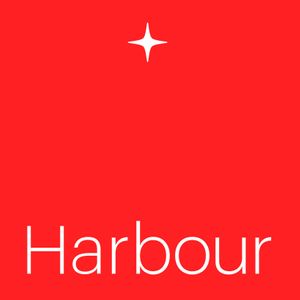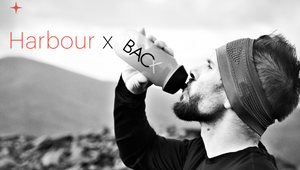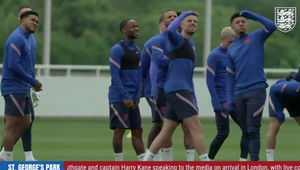
Writing a Data-Driven "Film Score" for the Year 2020
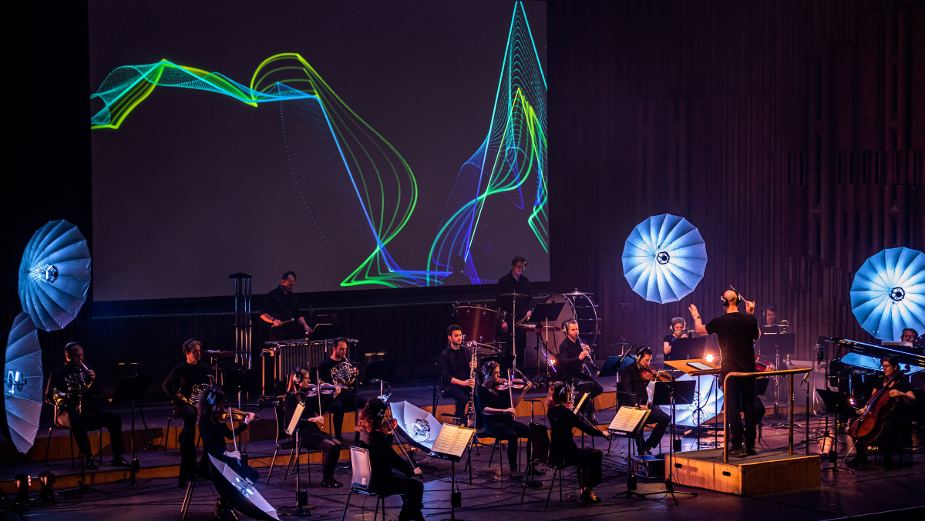
It’s no surprise to anyone that 2020 has been a more stressful year than most. In a recent survey conducted on behalf of Fitbit, 75% of UK respondents admitted to experiencing stress this year either due to the news surrounding Covid-19, their physical health, or job concerns. 33% even went as far as to say that 2020 has been the most stressful year of their life.
Responding to this, The Harbour Collective worked with Fitbit to create the Fitbit Stress Symphony. Transforming the reality of our stress levels into something beautiful, the project aims to give us a moment to reflect on the impact of the stress we’ve experienced this year, as well as reminding us of the unexpected moments of joy. A musical score informed by Fitbit’s data on the stress of the nation, the emotive orchestral piece is an ideal way to reflect on what we’ve been through.
To understand the strategic, creative and technical thinking that went into composing it, LBB’s Alex Reeves spoke to the team behind it from The Harbour Collective, PrettyGreen and The Producers.
LBB> Where did the idea for the Fitbit Stress Symphony first start? Did it begin with the data they have access to?
Mick Mahoney (creative partner)> The idea came from the product. The Fitbit Sense launched in Europe in March with a new feature - a Stress Management Score. Which is the first time you’ve been able to actually quantify exactly how much stress you are experiencing. Everyone is always saying how stressed they are, it has become like a modern day competition to be the most stressed person you know. We wanted to bring the idea of having a stress score to life in an emotive and visceral way to humanise the brand. As it could seem a bit dry and data led. We looked at a number of ways of doing this until the team at PrettyGreen developed the idea to make the stress people have experienced throughout 2020 visible by translating the data into a score of music. We immediately knew this would be a powerful approach.
Emma Grace / Emma Carson (creative directors)> The idea was inspired by the USP of the Fitbit Sense, its Stress Management Score – stress levels fluctuate, just like a piece of music, but unlike music, stress is often invisible and unconscious. The Stress Symphony was designed to help people recognise stress and ultimately help them manage it more effectively. By looking at how the world had dealt with stress during 2020 and Covid-19 we were presented with a very relevant cultural situation to delve into in terms of data.
LBB> What was the message that Fitbit wanted to communicate through this campaign?
Mick Mahoney (creative partner)> Fitbit’s message was simple. In a world that is out of your control and causing increasing numbers of us to feel more and more stressed, Fitbit can help you to manage your stress levels and be healthier mentally and physically as a result.
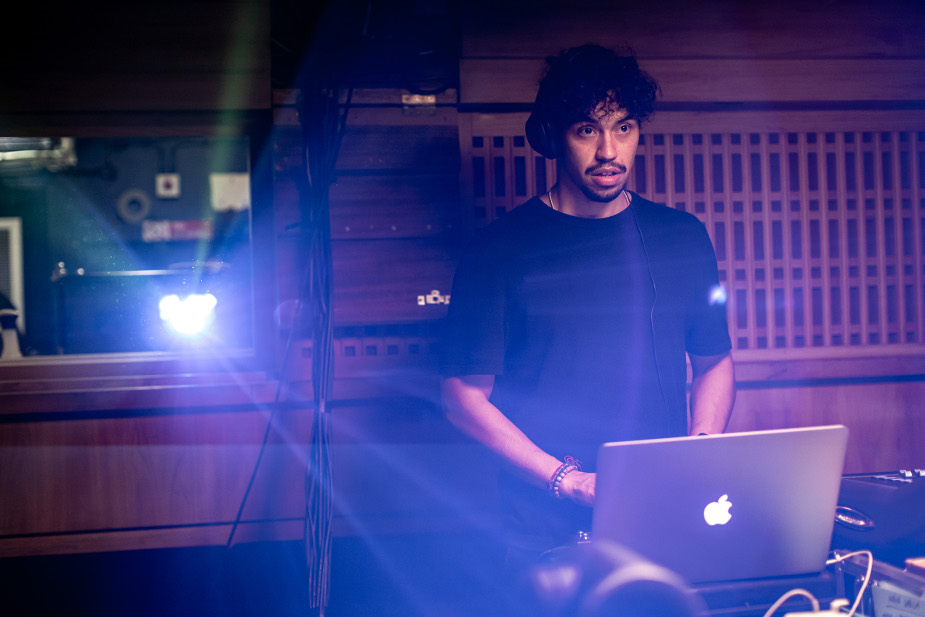
Aston Rudi (sound design and production)
LBB> How did you land on the approach to tell the story of this data through music?
Emma Grace / Emma Carson (creative directors)> Stress is a difficult thing to show and talk about, we knew we needed to physically represent stress levels and how they ebb and flow. Film scores communicate so much emotion and meaning, we wanted to do this with 2020. Take people on an emotive journey through 2020, so that they could reflect on the impact of the stress we have experienced this year, as well the unexpected moments of joy.
Emily Koppit (project director)> Once we had landed on the idea of a score of music, we reached out to Ben to ensure what we needed to do was possible. When talking through the possibilities of the data tracking and using music creation as a way to tangibly tell the story of the fluctuating stress levels of 2020, it became clear that music would be a powerful tool.
LBB> What were the big breakthroughs that convinced you that the composition and recording was possible?
Emily Koppit (project director)> As soon as we started working through the data with the team and seeing the impacts of the huge key moments of 2020 that resonated with the different markets the project really started to come to life. The data points alongside the Google search trends and social media sentiment highlighted key events and the emotional reactions to them. Whether that be a clear spike in people’s ability to manage their stress after a potentially negative event, such as the first lockdown being announced, or showing people’s resilience or a spike in positivity around communities coming together, such as when the nations clapped for carers. As we created the graphs to share with Ben to compose, his reaction to them made the concept of The Fitbit Stress Symphony a tangible reality.
Amelia Farhang (executive producer)> When we received the data, it showed the dramatic shifts in emotion that we expected. And it flowed and moved exactly how we had hoped, really showing the dramatic shifts in mood/stress/mental health for everyone this year. It confirmed that the concept and idea could actually come to life as Ben (our composer) was then able to write the music to authentically and genuinely match the movement of the data to represent the highs and lows of emotion throughout the year, which is exactly what we wanted to show in this piece of work. Aston then built on this from a storytelling perspective with production and it led to an authentic representation of the events of this year.
Aston Rudi (sound design and production)> For me it was hearing Ben Palmer’s composition coalesce with the visual data for 2020. That definitely inspired me to get creative and informed me on key moments for the sound design.
Ben Palmer (composer and conductor)> For me, the big moment was actually seeing the data collated into a visual graph for the first time. The basic shape felt quite similar to my own experience of 2020, and so that made a great starting point to sit down and begin sketching out the musical material.
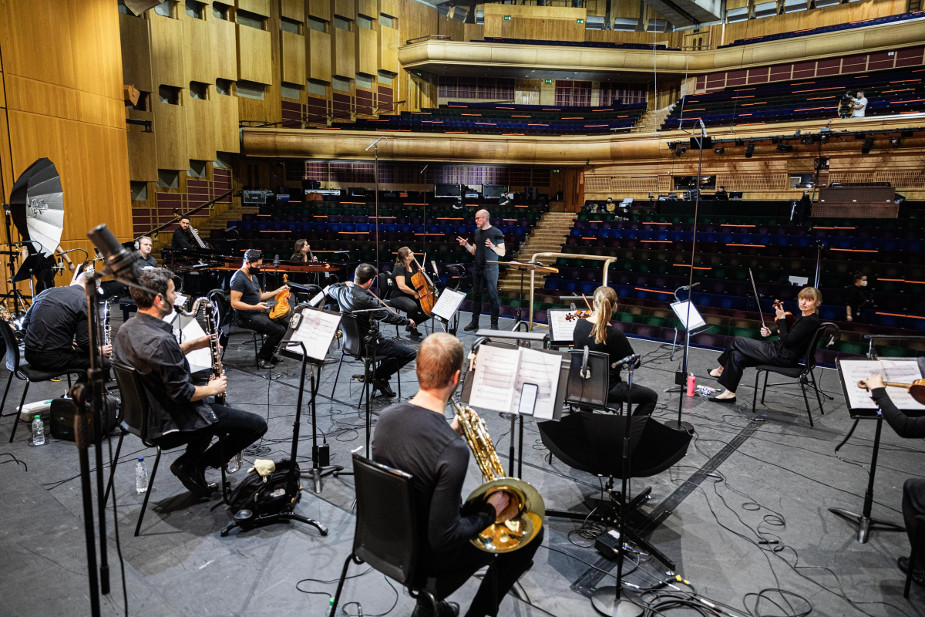
LBB> What were the actual nuts and bolts of transforming the data into an orchestral composition?
Amelia Farhang (executive producer)> I will let Ben answer this from an orchestral composition perspective - but from the production side, it was ensuring that the data we shared with both Ben and Aston was accurate, with a clear and structured timeline across the year - highlighting key events that we felt needed to be focused on or emphasised in the music, to ensure the story was a genuine representation of the year and what people have been through.
Ben Palmer (composer and conductor)> The Fitbit data, search trends and social media sentiment were all combined into a stress management graph, which the stress levels for each country plotted against each week of the year. Once I'd calculated how long each week should be in the music, it was a case of finding the big moments (such as the start of lockdown, BLM protests etc.) where I really wanted the changes of mood in the music to be precisely synchronised with the data, and where the flow of the music could express the emotion of the moment. In that respect, it was exactly like writing a film score, albeit for the year 2020, rather than a movie, and compressed into the duration of a three-minute pop song. Working with Aston added another layer of richness to the process, and we both enjoyed collaborating on this unique creative project.
LBB> How did the recording work, considering we're still deep in a pandemic?
Amelia Farhang (executive producer)> The recording itself was logistically more challenging due to the pandemic and various restrictions in place. We knew we wanted an iconic venue, so selected the Barbican in London and its beautiful music hall main stage. We had to adapt and implement various measures to be Covid safe from a PPE/sanitation perspective. We also had to keep crew numbers tight, a socially distanced stage plan with the musicians spaced far apart (meaning we could only comfortably fit 20 musicians on the huge stage!), one-way systems and individual dressing rooms for all. All planning beforehand was done remotely with all teams collaborating and planning via Zoom calls. It was a process!
Ben Palmer (composer and conductor)> We spent a long time planning the number of players we could safely get on stage at the Barbican, and how best to arrange them, and the microphones and film crew, to best serve the recording, whilst keeping everyone safe.
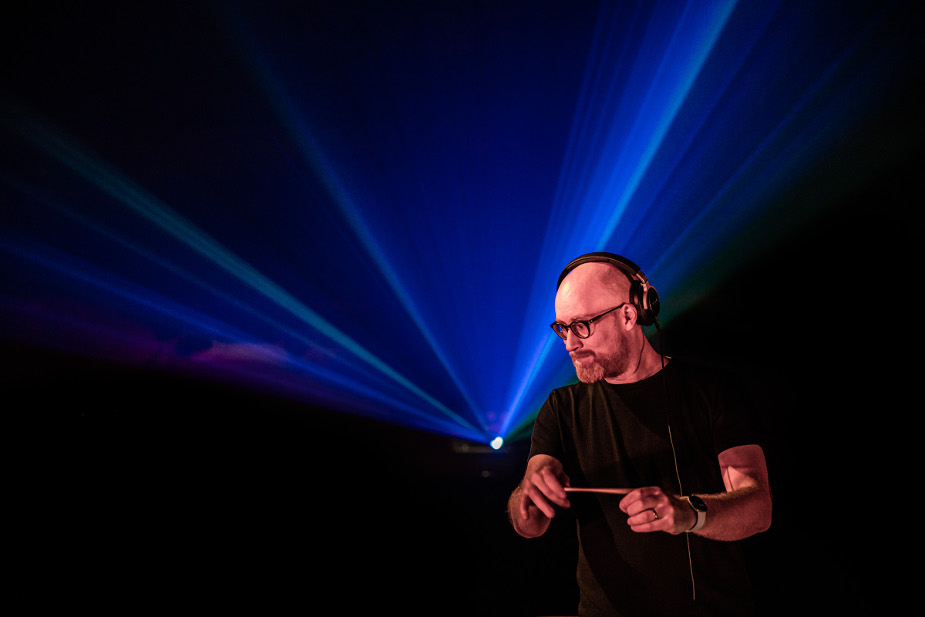
Ben Palmer (composer and conductor)
LBB> And what was the recording like? It must have felt incredible to be in the Barbican with an orchestra performing live in a year like 2020!
Amelia Farhang (executive producer)> It was very emotional. Honestly the whole team felt it, including the stage management team at the Barbican. We all took time to have our own personal moments that day, to take it in and really feel thankful to be in such an incredible space, listening to an orchestra of that standard playing live music for the first time in so long. It was a privilege. Tears were shed! It was the first and likely the last time most of the musicians would perform together this year, so it was incredibly emotional and meaningful for them too.
Aston Rudi (sound design and production> Epic and peculiar all at the same time. An unconventional first time for me seeing, hearing and working alongside a live orchestra.
Ben Palmer (composer and conductor)> It was incredible to see my orchestra, Covent Garden Sinfonia, again, and for us to be performing live together in the same space for the first time in nine months. We're a pretty tight bunch socially as well as musically, and having the opportunity to both catch up and record together was pretty overwhelming. Although I lived with the music I was writing pretty much 24/7 for five weeks, it was an indescribable feeling to hear it played live in the first minutes of the recording session.
LBB> What was the strategy for delivering the composition to audiences with the right messaging around it?
Emily Koppit (project director)> There was a real focus to ensure we were showing the full picture of 2020, highlighting the obviously stressful moments as well as the positive moments, outcomes and points throughout the year. The data represented the resilience and optimism of people, whilst being true to the fact that 2020 has been a life changing year. It was important for us to deliver the message of human resilience.
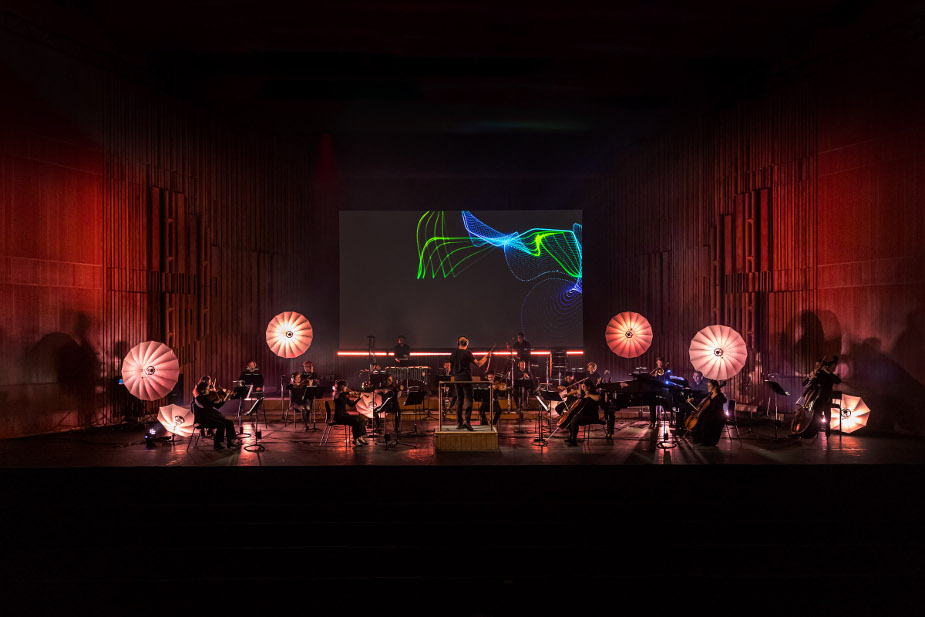
LBB> What is the insight that most sticks with you from working on this ambitious project?
Mick Mahoney (creative partner)> What this project highlighted is just how incredibly resilient we are as humans. We have the capacity to cope with extreme change and challenges, but still retain our positivity. No matter how hard it gets and how many blows we take, we come back stronger.
Amelia Farhang (executive producer)> The takeaway feeling I have from this project, is that even during a pandemic, a lockdown etc - when things feel so impossibly restrictive, challenging and often hopeless when it comes to the arts industry, which is suffering so much, we were still able to create something beautiful. To come together, have incredible talent, do what they love, to perform, to feel and to deliver something together. It really meant a lot and has really inspired me for upcoming projects, just to ensure we stay moving and creating in 2021. The arts are still very much alive.
Aston Rudi (sound design and production)> Honestly, it was a pleasure to work alongside like minded creatives outside of my world and see all the different elements of the music and visuals come together.
Ben Palmer (composer and conductor)> The thing I was most surprised about was how moved I was the first time I heard and saw our audio from the recording session in combination with the finished film and visuals. At the end of the day, I know The Fitbit Stress Symphony is essentially our personal response to data collected from many people, all of whom will have had their own experience of this difficult year, but I'm really proud that what we've created seems to speak so directly to everyone who has seen and heard it.







